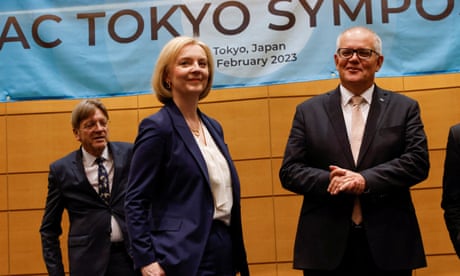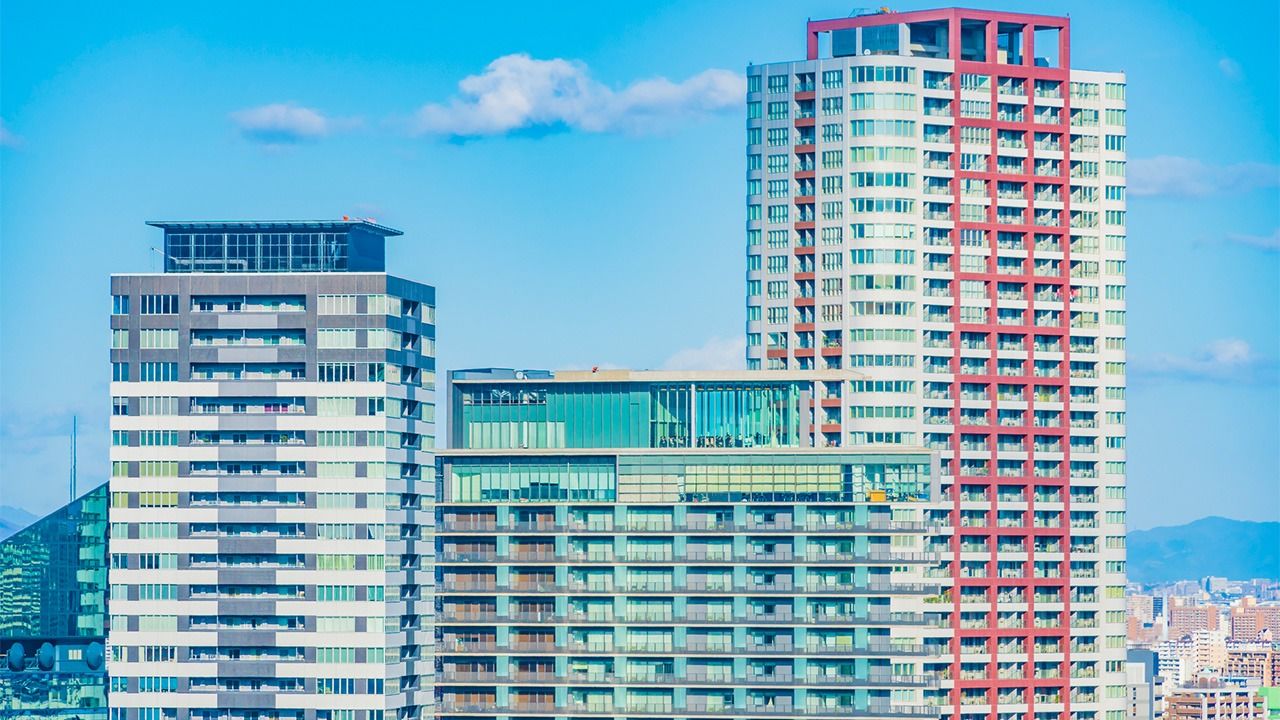A Chinese government delegation has visited Taiwan for the first time since the start of the pandemic, sparking some partisan tension on the island over cross-strait interactions as Beijing reiterated its intentions to annex it.
The delegation of six officials, including the deputy head of the Shanghai office of China’s Taiwan Affairs Office, Li Xiaodong, arrived in Taipei with plans to visit the Lantern festival and hold talks with local officials. They were invited by the city government, led by mayor Chiang Wan-an, of the opposition Kuomintang party (KMT).
The group arrived on Saturday, and were quickly driven away without answering questions from gathered reporters, local media said. Around a dozen pro-Taiwan independence supporters protested against their arrival outside the airport, shouting “Taiwan and China, separate countries” and “Chinese people, get out”, while on the airport road another small group of pro-China supporters shouted their welcome.

Taiwan’s Mainland Affairs Council said it had approved the application for a three-day visit, on the condition that it be low-key and without public political statements. But members of the ruling Democratic Progressive party (DPP) accused Chiang of being secretive about the visit, keeping information away from the DPP and the public, out of fear it would attract protest or controversy.
The visit has added to domestic tensions around cross-strait communication. The KMT has traditionally sought closer ties with China’s government, and its vice-chairman, Andrew Hsia, recently visited Beijing. Hsia was criticised for his 10-day visit, the second since a controversial visit shortly after the Chinese military drills that followed Nancy Pelosi’s visit to Taiwan last year. Hsia was accused of colluding with an aggressive state, but he and the KMT defended the trip, saying they believed the trip helped reduce tensions. The KMT is seen as having a chance at regaining power in Taiwan’s presidential elections in 2024.
The KMT’s stance is in contrast with that of the DPP, whose current leadership maintains that Taiwan is a sovereign independent nation, whose people overwhelmingly reject Beijing’s plan for what it terms “reunification”.
The Chinese government cut communication with Taipei upon their election in 2016, labelling them separatists, but city-to-city visits continued until the pandemic closed borders. In that time, China’s military harassment of Taiwan has increased. Air force and navy sorties around Taiwan are now a near-daily occurrence, including frequent crossings of the median line.
Lev Nachman, a political science professor at Taiwan’s National Chengchi University, said the cross-strait visits were seen as controversial by those on the “green” (pro-DPP) side of Taiwan’s politics, because “there is worry these actions are at the risk of Taiwan’s safety and sovereignty”.
“It’s worth noting that if you are blue-leaning [pro-KMT], these trips are not controversial,” Nachman said. “It’s possible to support cross-strait dialogue without supporting reunification.”
At the same time, Taipei officials welcomed the Chinese delegation, China’s foreign minister Wang Yi resisted calls to reassure the world that further Chinese military escalation was not imminent.
Speaking on stage to the Munich security conference on the weekend, Wang instead accused “separatist forces” on Taiwan of seeking to change the status quo. “I will briefly assure the audience that Taiwan is part of Chinese territory,” he said. “It has never been a country and it will not be a country in the future.”
The Mainland Affairs Council rejected Wang’s characterisation that the status quo was a subordinate Taiwan, saying that the Republic of China (ROC), Taiwan’s official name, has not been and never will be a part of the People’s Republic of China.
Source : TheGuardian














